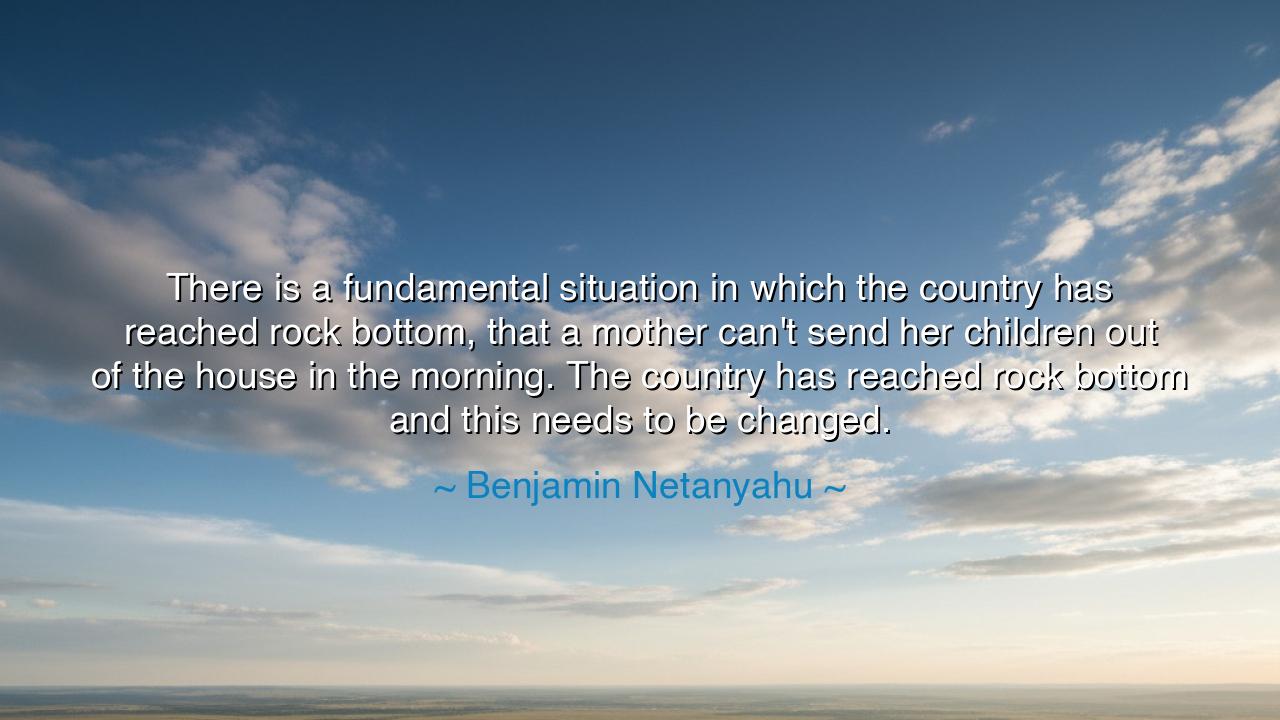
There is a fundamental situation in which the country has
There is a fundamental situation in which the country has reached rock bottom, that a mother can't send her children out of the house in the morning. The country has reached rock bottom and this needs to be changed.






Benjamin Netanyahu once declared: “There is a fundamental situation in which the country has reached rock bottom, that a mother can’t send her children out of the house in the morning. The country has reached rock bottom and this needs to be changed.” These words burn with urgency, for they speak not only of politics but of the very essence of civilization: the sacred duty to provide safety for the most vulnerable, and the measure of a nation’s strength by the peace it offers to its families.
At the heart of his declaration is the image of the mother—the universal guardian of life, who should be able to send her children into the world without fear. When even this most basic trust is broken, when the streets are so dangerous or unstable that a parent hesitates at the doorway, then truly the country has reached what he calls rock bottom. It is not the lack of wealth, nor the absence of power, but the collapse of security that signals the depth of decline.
The ancients too held this truth. In Rome, the Pax Romana was celebrated not for its grandeur alone, but because it gave citizens the freedom to walk without fear from one end of the empire to the other. In the Hebrew Scriptures, the prophets often measured righteousness by whether widows and orphans were protected, whether children could grow without terror. To secure the safety of families was not merely policy—it was sacred covenant, proof that leaders had fulfilled their charge.
History offers bitter lessons when this covenant is broken. In the final years of Weimar Germany, parents feared letting their children wander the streets as violence and political chaos reigned. In war-torn lands across time, from ancient Troy to modern nations, the image of a mother clutching her children has stood as the symbol of despair. Netanyahu’s words echo this ancient cry: that a land where children are not safe is a land whose foundations are crumbling.
And yet, in his statement there is also the seed of resolve. He does not speak of rock bottom only to despair, but to call for change. For when the lowest point is reached, there arises the chance for renewal. Like the phoenix from ashes, nations too can rise when leaders and people together remember their first duty—to protect the innocent, to rebuild trust, to make the land a place where the morning is no longer feared but welcomed with hope.
The deeper meaning here is not bound only to Israel or to one people. It is universal. Every society must ask itself this: can a mother let her children walk freely at dawn? If not, then all wealth, all pride, all speeches are but dust, for the heart of the nation is already broken. Safety, peace, and dignity in daily life—these are the true crowns of leadership.
Therefore, let this be the teaching: when a people find themselves at rock bottom, it is not the end but the beginning of transformation. Leaders must rise, communities must unite, and the safety of the most vulnerable must become the highest law. For when the mother can again send her children into the morning without fear, then, and only then, can a nation say it has risen from the depths and found its way back to light.






AAdministratorAdministrator
Welcome, honored guests. Please leave a comment, we will respond soon